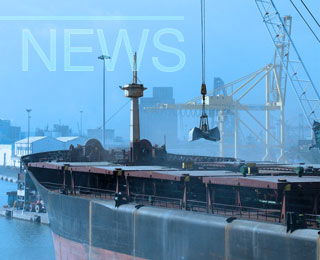Indian steel units using the blast furnace route of steel production are facing a major crisis in offloading the slag because cement companies are mostly using the flyash generated by thermal power plants. According to Mr R.P. Singh, Managing Director, Bhilai Steel Plant, the problem has aggravated now, and he feels that the Centre should intervene at the earliest.
He said the demand for blast furnace slag granulates among the cement manufacturers had dropped drastically, resulting in lower offtake. "The major problem in the near future would be storing the slag granules," Mr Singh told Business Line.
In the steel-making process, as iron ore is transformed into crude steel in the blast furnace, granulated slag is a natural by-product. Cement companies used to buy this granulated slag, crush it and blend with the clinker.
Of late, flyash which is freely available has replaced the slag. And the power companies even pay cement factories for evacuating the flyash which marginally reduces the cost of carrying it. Moreover, the flyash is available in powder form and hence there is no need for crushing by the cement companies which further reduces the production cost for the cement companies.
"There is another reason for using flyash. The Union Government has already set a guideline that cement used in the national highway project must have 20 per cent flyash content. This too made blast furnace slag unattractive," an executive of a cement company said.
As a result, the price of granulated slag in central India has dropped to around Rs 150 a tonne. In eastern India the price is still hovering around Rs 300 a tonne. In Andhra Pradesh it even dropped below Rs 150 a tonne. "In the eastern region more infrastructure projects are going on, and the demand for cement is higher compared to other regions. So, there are still some takers for the slag. However, for us in central India, the situation is going out of control," Mr Singh said.
According to him, three major steel companies were facing this problem and the matter has been brought to the notice of the Steel Ministry. The affected steel units are now trying to reduce the production of slag, which is correlated to the silica content in iron ore. "Till the other day we were focused on iron content but now we are constantly keeping a tab on the silica content," an official in the Raw Material Division of SAIL said.
